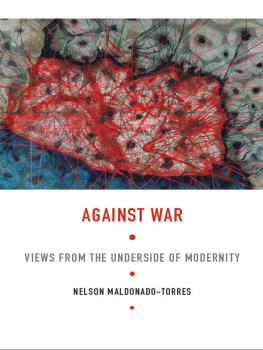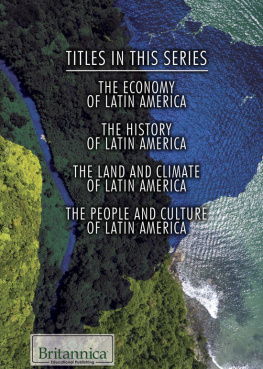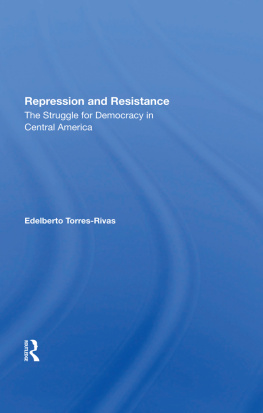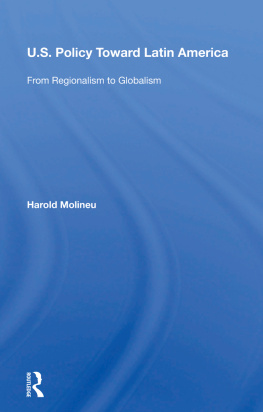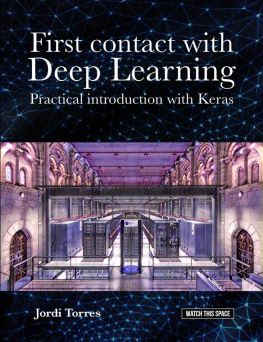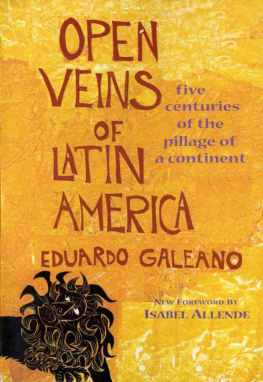Nelson Maldonado-Torres - Against War (Latin America Otherwise)
Here you can read online Nelson Maldonado-Torres - Against War (Latin America Otherwise) full text of the book (entire story) in english for free. Download pdf and epub, get meaning, cover and reviews about this ebook. year: 2008, publisher: Duke University Press, genre: Politics. Description of the work, (preface) as well as reviews are available. Best literature library LitArk.com created for fans of good reading and offers a wide selection of genres:
Romance novel
Science fiction
Adventure
Detective
Science
History
Home and family
Prose
Art
Politics
Computer
Non-fiction
Religion
Business
Children
Humor
Choose a favorite category and find really read worthwhile books. Enjoy immersion in the world of imagination, feel the emotions of the characters or learn something new for yourself, make an fascinating discovery.
- Book:Against War (Latin America Otherwise)
- Author:
- Publisher:Duke University Press
- Genre:
- Year:2008
- Rating:3 / 5
- Favourites:Add to favourites
- Your mark:
- 60
- 1
- 2
- 3
- 4
- 5
Against War (Latin America Otherwise): summary, description and annotation
We offer to read an annotation, description, summary or preface (depends on what the author of the book "Against War (Latin America Otherwise)" wrote himself). If you haven't found the necessary information about the book — write in the comments, we will try to find it.
Against War (Latin America Otherwise) — read online for free the complete book (whole text) full work
Below is the text of the book, divided by pages. System saving the place of the last page read, allows you to conveniently read the book "Against War (Latin America Otherwise)" online for free, without having to search again every time where you left off. Put a bookmark, and you can go to the page where you finished reading at any time.
Font size:
Interval:
Bookmark:
A BOOK IN THE SERIES
Latin America Otherwise:
Languages, Empires, Nations
Walter D. Mignolo, Duke University
Irene Silverblatt, Duke University
Sonia Saldvar-Hull, University of Texas,
San Antonio
DUKE UNIVERSITY PRESS DURHAM & LONDON 2008
2008 Duke University Press
All rights reserved
Printed in the United States of America on acid-free paper 
Designed by Katy Clove
Typeset in Scala by Tseng Information Systems, Inc.
Library of Congress Cataloging-in-Publication Data appear on the last printed page of this book.
To recognize with philosophyor to recognize philosophicallythat the real is the rational and the rational is alone real, and not to be able to smother or cover over the cry of those who, the morrow after this recognition, mean to transform the world is already to move in a domain of meaning which the inclusion cannot comprehend and among reasons that reason does not know, and which have not begun in philosophy.
EMMANUEL LEVINAS, GOD AND PHILOSOPHY
The tragedy faced by anyone seriously engaged in struggle against the institutional encouragement of dehumanization is that institutionalized dehumanization is fundamentally a state of war. To see colonialism and racism clearly is to see that where such conceptions of reality reign, there is a shift in the presuppositions of justice and fairness that may have operated within traditional mores and folkways.
LEWIS R. GORDON, FANON AND THE CRISIS OF EUROPEAN MAN
Latin America Otherwise: Languages, Empires, Nations is a critical series. It aims to explore the emergence and consequences of concepts used to define Latin America while at the same time exploring the broad interplay of political, economic, and cultural practices that have shaped Latin American worlds. Latin America, at the crossroads of competing imperial designs and local responses, has been construed as a geocultural and geopolitical entity since the nineteenth century. This series provides a starting point to redefine Latin America as a configuration of political, linguistic, cultural, and economic intersections that demands a continuous reappraisal of the role of the Americas in history and of the ongoing process of globalization and the relocation of people and cultures that have characterized Latin Americas experience. Latin America Otherwise: Languages, Empires, Nations is a forum that confronts established geocultural constructions, rethinks area studies and disciplinary boundaries, assesses convictions of the academy and of public policy, and correspondingly demands that the practices through which we produce knowledge and understanding about and from Latin America be subject to rigorous and critical scrutiny.
Against War argues that European modernity has become inextricably linked with the experience of the warrior and conqueror, and that contemporary civilization, racism, and other forms of social and geopolitical dynamics in the modern world can best be understood in terms of the idea that war, as Nietzsche affirmed, is the natural state of things. This paradigm of war, Maldonado-Torres shows, conceives humanity, knowledge, and social relations in such a way so as to privilege conflict as a means to create order. Against this paradigm and to offer an alternative to it, Maldonado-Torres asserts the viability of subaltern perspectives and secular/religious thought that he gathers from Jewish, black, and Latin American voices epitomized in the work of three philosophers: Emmanuel Levinas, Frantz Fanon, and Enrique Dussel.
Certainly many thinkers have addressed the challenges to Western philosophy and political theory posed by two world wars and the Jewish Holocaust, but Against War shifts the terrain of this critique by exploring connections among colonialism, racism, war, and genocide in the long history of European modernity. The book is divided into three parts. The first focuses on elucidating a master morality of dominion and control at the heart of racial policies, imperial projects, and wars of invasiona perspective centered on Levinass notion of the self in Judaic ethics within the context of French liberalism and Nazi racial politics. In the second part, Maldonado-Torres turns to Fanon, first to refine the diagnosis of modernitys war paradigm via Fanons phenomenology of the colonized and racial self, and second through a Levinasian interpretation of Fanon and a Fanonian critique of Levinas, which leads Maldonado-Torres to formulate an ethical conception of subjectivity and de-colonial praxis as consistent responses to the perversities of European modernity. Finally, in the third section, Maldonado-Torres uses Dussel to provide a genealogy of the modern imperial and warring self, and he ultimately offers a theorization of race as a naturalization of the death ethic of war.
Against War constitutes an important intervention in critical theory, critical race theory, area studies, and postcolonial thought. Its analysis of the unfinished projects of de-colonialization and deracialization contributes concepts intended to help undo the legacy of colonialism, racism, and war in the contemporary world.
Even though this book was first conceived several years ago, its publication might be more timely now than at any time in the recent past. Humanity witnesses today the utter failure of the most recent military adventure of the worlds most powerful nation, and U.S. Americans among others are more prone to reflect now on the way in which discourses of liberty and freedom often go hand in hand with deception and murder. This tie is not only one manipulated by politicians, but it sometimes seems to strike a chord in the public at large as well, particularly when the connection passes as if it were inevitable, natural, or even just. The link between the apparent defense of liberty and freedom, on the one hand, and annihilation, on the other, sometimes even seems like the stuff out of which media pundits fuel their diatribes, which cover not only the topic of Islamic terrorism but also that of the supposed challenges and menaces that normative identities, allegedly constituted by the highest principles of Christianity, liberalism, and modern republicanism, face today. All of this takes place while traditional victims of modern nation-states projects and global economics (the indigenous, the black, and nature itself, along with all deviant, abnormal, and suspicious subjectivities and empty or insignificant geopolitical spaces) continue suffering in disproportionate form from their negative effects and from what often appear as their necessary consequences.
This book is a theoretical analysis of what could be considered as the darkest side of Western modernity, which is found in the naturalization of war. and to man-made mass death or death-world that Edith Wyschograd theorizes. In this book I alternate the use of death ethic of war with the idea of non-ethics of war, which refers to the suspension of what usually goes by ethics not only in war, but in civilization. It is this suspension that allows the production of premature death to become normative, at least for well-selected sectors in society and in the globe.
In this sense, the naturalization of war does not simply refer to the continuous exercise of war. As I employ the term here, the naturalization of war involves a qualitative change that makes even ordinary life take the form of a selective suspension, or even a reversal of ethics as normally understood. This suspension is premised on ideas of natural difference that render some subjects or populations not only dispensable but excessive and necessarily
Font size:
Interval:
Bookmark:
Similar books «Against War (Latin America Otherwise)»
Look at similar books to Against War (Latin America Otherwise). We have selected literature similar in name and meaning in the hope of providing readers with more options to find new, interesting, not yet read works.
Discussion, reviews of the book Against War (Latin America Otherwise) and just readers' own opinions. Leave your comments, write what you think about the work, its meaning or the main characters. Specify what exactly you liked and what you didn't like, and why you think so.

